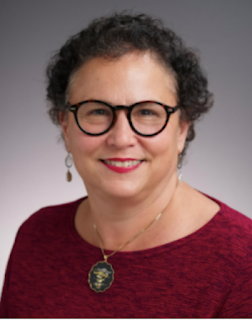December 1, 2022
From the December 2, 2022 Global Health Issue of the Transformational Times
Perspective/Opinion
Mentorship is a Partnership
By Laura D. Cassidy, MS, PhD
Dr. Cassidy, the Associate Dean of Global Health, has been a long-term mentor for the Dr. Elaine Kohler Summer Academy of Global Health Research program.
Being flexible and resilient are important and unexpected skills that medical students develop as they embark upon global health research. Unlike a highly structured medical school experience, students learn to adapt when things do not go according to plans. They pause, engage in the culture, and practice patience and kindness.
I learned as much from my medical students as they did from me—if not more. I have enjoyed mentoring many PhD students and, in 2018, I had the wonderful opportunity to mentor my first medical students in the Dr. Elaine Kohler Summer Academy of Global Health Research Program. We traveled to Kigali, Rwanda to meet with my partners and then to Kampala, Uganda where Sarah Benett (M1) and Brittany Fickau (M1) participated in a research project with my colleagues at the Child and Family Youth Foundation. They learned many important and expected research skills, from how to design an international study, to working with clinicians, to administering the Malawi Developmental Assessment Tool (MDAT) in young children, to analyzing data, and to preparing a manuscript.
I learned about the pressure that medical students impose upon themselves—their perception of needing to work twelve-hour days to being highly productive—and it was difficult for them to slow down and engage at African speed. An important unexpected skill that they developed was to pause and observe the culture. In this crowded city in a low- to middle-income country (LMIC), being “punctual” takes on a new meaning. Someone can plan to be early for a meeting or clinic but if there is a bad traffic jam, they may sit for hours in traffic. The meeting may happen three hours later or not at all.
At first, there was stress because of their internal pressure to be productive and, yet, they were dependent on a system and culture that they could not control. They learned to work with women and children in a clinic that served residents of informal settlements. They did not speak the same language. They were dependent on clinic staff and interpreters. They learned to form meaningful relationships and to network. There were reflections on how to be efficient with very limited resources and the importance of listening…even when you don’t speak the same language. One of the most import skills we all cultivated was flexibility. When things don’t go according to plan- pivot and be resilient.
All these experiences became even more important in 2020 when the pandemic hit. The next two M1 mentees, Lauren Tostrud and Hannah Racicot, were planning to do their summer research program in Rwanda. We did the best we could to zoom there frequently, and they worked diligently with our partners on important literature reviews about the effects of the Hutu genocide against the Tutsis. We stayed in our homes and watched movies about sub-Saharan Africa and the culture and discussed them. Throughout the pandemic, they never complained, they remained excited about their work, and I learned about the ways they implemented the skills they acquired into their medical school training.
I am honored to serve as a mentor to these bright and dedicated students and this role does not end after a semester or graduation. Together we learn, we support each other, and we thrive.
Laura D. Cassidy, MS, PhD, is the Associate Dean of Global Health, Professor and Director of the Epidemiology & Social Sciences Division, and Founding Director of the Master of Science Program in Global Health Equity at MCW.



